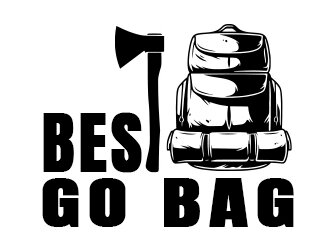Whether you’re camping or going off-grid in a crisis, when you’re setting up camp in the woods, you need fire.
Regardless, you need a fire. To heat water, cook food, and stay warm. Your choices are a camp stove or campfire. Which do you choose?
There are pros and cons to both. And the decision may depend on a variety of factors. Including how many people are in your party. How much water you wish to heat or food you want to cook. Or how many hands there are to warm.
Your choice may also depend on what materials you have at your disposal. And whether you are concerned about attracting attention to yourself.
Compact & easy to use
Today I want to discuss those pros and cons. You may end up deciding you prefer one method over the other. But it never hurts to have both options available.
First off, what is a camp stove? It’s a portable cooking device used mainly by outdoor enthusiasts. But it’s also ideal for those who only occasionally – or unexpectantly – find themselves in the middle of nature.
Camp stoves are very compact, making them easy to transport. They come in many different sizes and shapes. And they use a variety of “fuels” to function.
Some require a fuel such as propane or butane, or a blend of them, contained in a canister. Others can provide a fire simply with sticks, leaves, and grasses.
Safety first with stoves
Why use a camp stove rather than building a fire? There are numerous reasons. And the smaller your party, the more it makes sense to choose a camp stove.
Many parks prohibit the use of campfires during the summer. And during dry spells in other seasons. They are too much of a risk for a damaging and possibly deadly forest fire.
A self-contained camp stove provides a much safer alternative. Sparks won’t go flying in different directions.
You’d pretty much have to throw your ignited camp stove into a pile of leaves to start a forest fire.
You don’t need fuel
Another advantage to a camp stove that doesn’t require fuel is the effort to use one, compared to building a campfire. Finding a small amount of sticks, twigs, leaves, and grass will generally be much easier than finding logs.
And if there has been rain recently, it’s likely those logs will be wet and difficult to maintain a fire. Sticks and leaves will dry much faster.
Direct heat is another factor that favors a camp stove over a campfire. A campfire’s heat will drift wherever the breeze takes it. A camp stove’s heat is channeled right where you want it.
You can place your pots and pans directly onto or over your camp stove so they will receive the stove’s direct heat.
Camp stoves are fast & reliable
Do campfires have any advantages over camp stoves? For groups of people who need or want a larger fire, yes.
Sitting around a campfire, cooking food, roasting marshmallows, and chatting with friends or family members can be a very enjoyable experience.
Some of my best memories are centered around campfires. Bonding with childhood friends at camp and with family members on camping trips is etched into my mind.
But when it comes to convenience, ease of use, safety, and discreet fire-making, camp stoves have some distinct advantages. Especially when you’re by yourself or with a small group.
And when it comes time to survive in a crisis, nothing beats a camp stove for a fast and reliable way to heat your water, cook your food, or generate warmth.

